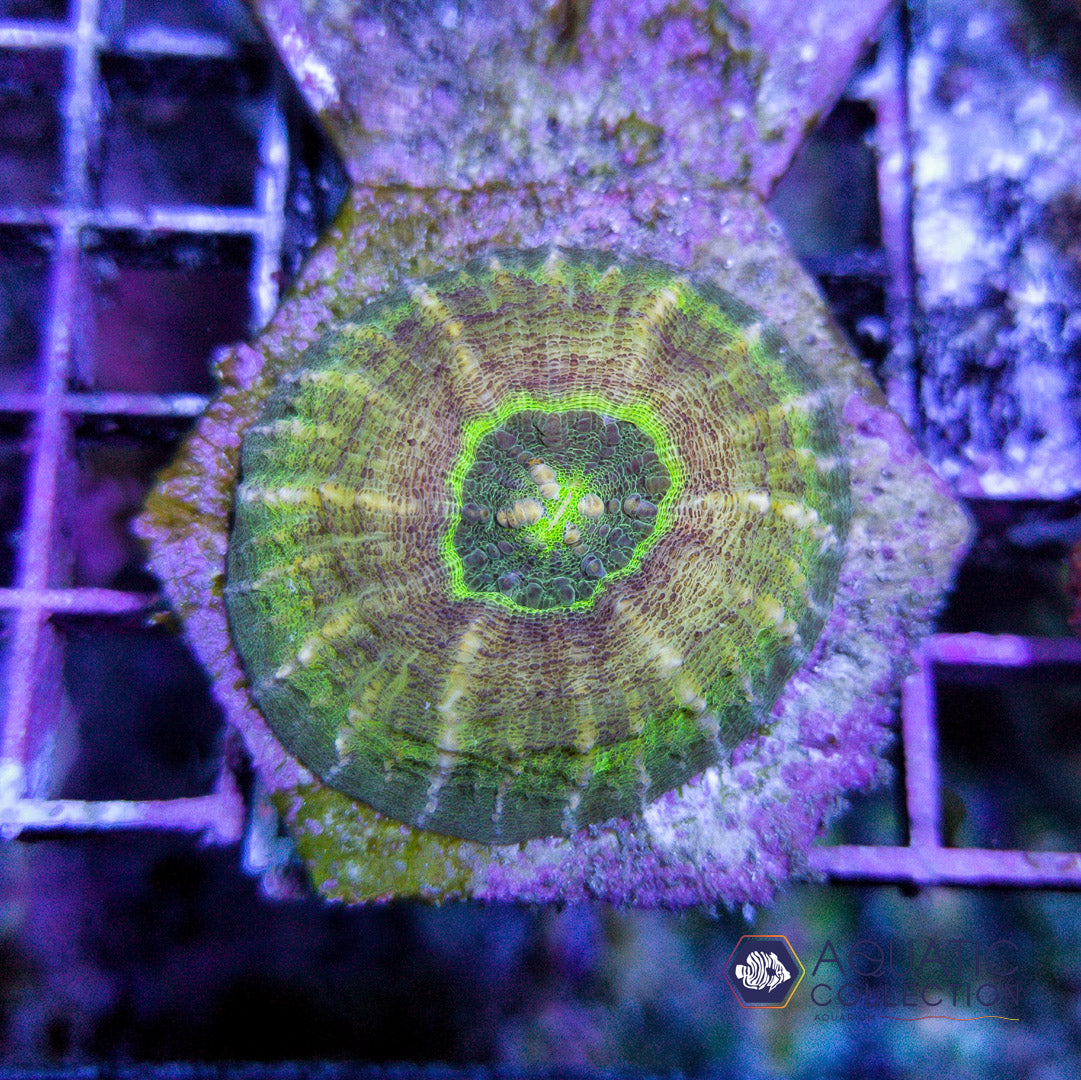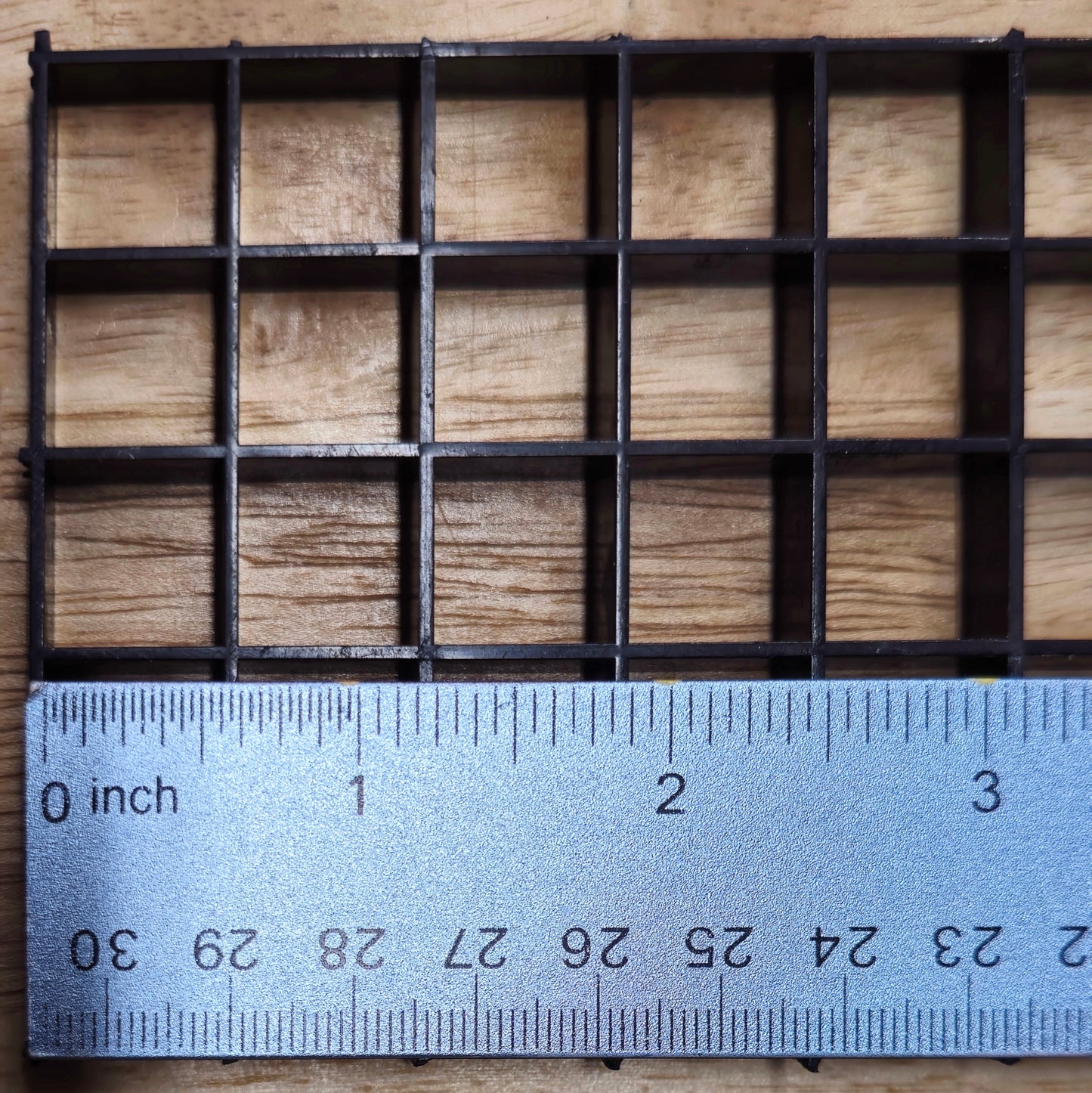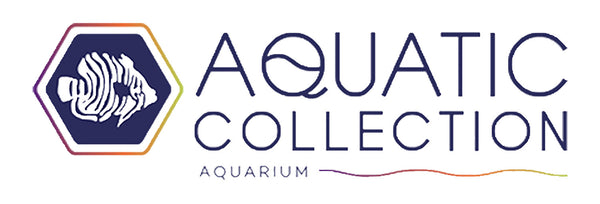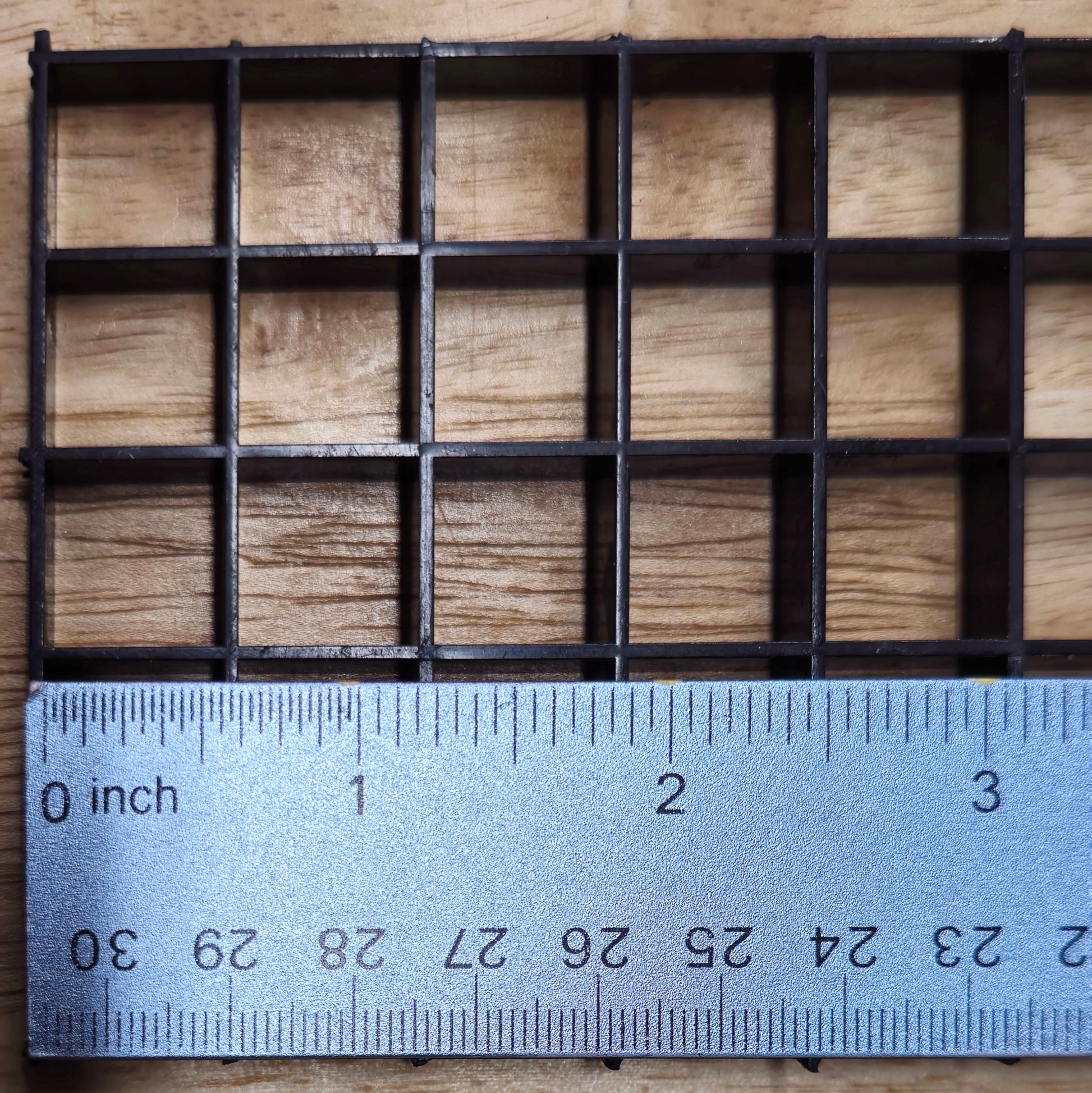Aquatic Collection Aquarium
UFO Scoly
UFO Scoly
Couldn't load pickup availability
Species: Scolymia sp.
Approximate size: 1.75"
Colors: Green, Tan, Purple
Scolymia coral, often referred to as Scolymia spp., is a striking and popular choice among marine aquarists, known for its unique shape and vibrant colors. Here’s a detailed description:
Physical Characteristics
-
Shape and Structure: Scolymia corals typically have a round or oval shape, resembling a plate or disk. They can vary in size, generally ranging from 4 to 12 inches (10 to 30 cm) in diameter. The coral's structure is a single polyp that expands and contracts, giving it a unique, fleshy appearance.
-
Tentacles: Unlike some other corals, scolymia corals do not have long, sweeping tentacles. Instead, they have short, stubby tentacles that can retract into the coral body when it is stressed or during the day. These tentacles come alive at night, extending to capture food.
-
Coloration: Scolymia corals are renowned for their vibrant and varied colors, including shades of green, blue, purple, red, and orange. The color patterns often include striking stripes or mottled designs, making each specimen unique.
Habitat and Distribution
-
Natural Environment: Scolymia corals are primarily found in shallow waters of the Indo-Pacific region, often on reef flats or slopes. They thrive in areas with moderate water flow and good lighting.
-
Light Requirements: While they can tolerate a range of lighting conditions, low to moderate lighting is typically preferred to promote healthy growth and vibrant coloration.
Care Requirements
-
Water Flow: Scolymia corals prefer moderate water flow. Too much flow can cause stress, while too little can lead to debris accumulation and poor health.
-
Water Parameters: Stable water conditions are crucial for scolymia health:
- Temperature: 76-79°F (23-27°C)
- pH: 7.8-8.4
- Salinity: 1.023-1.025 specific gravity
- Nitrate and Phosphate: Low levels are ideal, as high nutrients can lead to algae overgrowth.
Feeding
Scolymia corals are considered primarily heterotrophic, meaning they rely on feeding for nutrition, although they also have zooxanthellae in their tissues that provide some energy through photosynthesis. To promote optimal health:
- Feeding Options: They benefit from regular feedings of small particulate foods, such as coral pellets, finely chopped seafood, or liquid foods designed for LPS corals. Feeding should occur a few times a week, particularly in the evening when the tentacles are extended.
Behavior and Aggression
-
Aggressiveness: Scolymia corals are generally less aggressive than some other LPS corals but can still exhibit territorial behavior, particularly when placed near other corals. Providing sufficient space around them is essential to prevent stinging from their sweeper tentacles.
-
Compatibility: They can coexist with various tank mates, including other LPS corals, but care should be taken to monitor their interactions, especially with more aggressive species.
These corals are for saltwater aquariums only.
This is the exact specimen you will receive, however, due to differences in tank lighting and screen settings, this item may look slightly different in your aquarium.
For measurement reference use the picture with the black grid and the ruler.
For acclimation details see here.
Share




